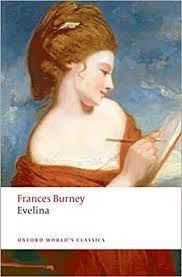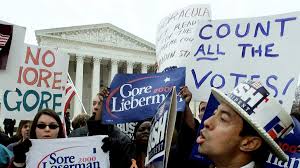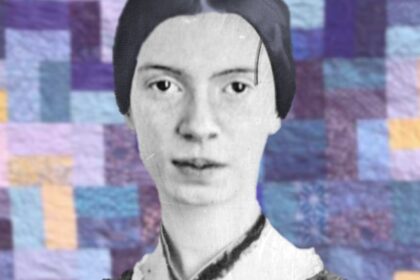“I said no, before I knew I had answered at all.” (Burney 123)
This assertion by Frances Burney’s heroine, Evelina, summarizes my argument quite perfectly. In Evelina, Burney reveals a social world that consistently puts women in situations where they’d like to refuse, and as such, our heroine develops both an instinct for refusal and an awareness of its limits. Throughout Evelina, Burney crafts a heroine continuously determined to say no – to dancing and to proposals, and these instances exist as the moments where Evelina exerts agency as a heroine. For the purposes of this paper, affirmative power is defined as the power to generate plans, make primary choices, or move of one’s own accord, whereas negative power will be defined as the power of refusing, making secondary choices, or choosing to remain still. Burney concedes that the society her characters operate in will never allow women affirmative power, and yet, her heroine seeks out, discovers, and thrives within scenes that afford her negative power – perhaps arguing that female agency is worth finding. Through crafting a character continually asserting a negative power within a system that refuses her affirmative power, Burney’s Evelina constructs a road map for female agency within a restrictive system. However, Burney further complicates this notion by illustrating, in the conclusion of the text, that refusal does not always work. Evelina, then, argues that although negative agency is the best women can hope for, the power of refusal is not absolute.
In order to explore the function of negative power within Evelina, it is first necessary to explore Evelina as a character being denied affirmative power. In refusing our heroine this power, Burney aims to call attention to a larger lack of feminine agency within the culture. Throughout Evelina, carriages function as a symbol for the agency of mobility, and this is an agency Evelina is not afforded. While residing with the Branghtons, Evelina attends an Opera where she notices the relentless Sir Clement Willoughby in attendance, much to her chagrin. Sir Wolloughby offers to give Evelina a ride home in his carriage, and before she offers a response, she is whisked away: “Without waiting for an answer, I suffered Sir Clement to hand me out of the gallery,” writes Evelina, illustrating her inability to choose where, when, and with whom she moves (Burney 198). In this example, Evelina is not allowed to protest; the decision is made entirely for her, with the narrative forcing our heroine to remain passive in obedience. While on the ride home, Evelina is entirely under the jurisdiction and control of Sir Clement, who both instructs his driver to go the wrong direction and confesses his love along the ride. “Never in my whole life,” writes Evelina, “have I been so terrified,” explicitly revealing the psychological effects of being denied agency over one’s movement, as women were (Burney 203). The reader is cued into these dangerous power dynamics early in the novel, making the exertions of negative power throughout Evelina stand out more powerfully.
If women could not choose where, when, or with whom they operated, perhaps women could refuse the plans presented to them.
Throughout the novel, Evelina remains determined to exert negative power in the ballroom, and she does so with varying degrees of success, therefore beginning to illustrate the limits of such power. On one of her first days at Howard Grove, the young, inexperienced Evelina attends a private ball with the Mirvans. When a “fop” whom Evelina finds “very ugly” asks for her hand in dance, Evelina “begged to be excused, and turned to Miss Mirvan to conceal my laughter,” constituting an early example of our heroine exerting the power of refusal (Burney 120-121). This moment allows the reader to know Evelina on a deeper level, revealing her natural taste, sense of humor, and charming naivete of proprietary rules. Though this anecdote appears charming at first, Evelina is later punished for her moral blunder. By refusing the hand of her first suitor and accepting a later one, Evelina has brazenly violated moral conduct, thus resulting in embarrassment. “Tired, ashamed, and mortified, I begged to sit down till we returned home,” she continues, revealing that negative power can have social consequences for female actors (Burney 127). This instance reveals that a woman could refuse to dance, but if she chooses to do so, she could also be punished for it.
Slightly later at a ridotto, Evelina a different refusal tactic, scheming to dissuade the unwanted suitor Mr. Lovel by telling him that she is already engaged to another dancing partner. After many disputes between the two regarding the imaginary suitor, Evelina obliges, and her “deviation from the truth is punished” (Burney 138). Though she attempted to say no, submission became required of her, therefore again revealing the limitations of feminine agency. Sometimes, one cannot refuse to dance.
Much later in the novel, Evelina is given a ticket to the Hampstead Assembly by Mr. Smith after having already expressed her desire to not attend – constituting an example of a failed attempt to exert negative power. “I determined that nothing should prevail upon me to dance with him,” writes Evelina, conveying a heroine unhappy with her forced movements and newly confident in asserting refusal (Burney 344). For the entirety of the ball, Evelina, rebelling against being forced to go, rejects any and all suitors that approach her. She remains steadfast in her determination to not dance, and the plot of the novel does not punish her for doing so. “We came home very safe, and thus ended this so long projected, and most disagreeable affair,” concludes Evelina, and thus, the text refuses to condemn Evelina’s refusal (Burney 350). Sometimes, but only sometimes, refusing to dance works.
These various dance refusals illustrate scenarios in which many women might desire to refuse the choice presented to her, and Burney reveals the varying success with which our heroine is allowed to do so. Her negative power in the ballroom is not absolute, but the fact that she succeeds even once must argue that exerting agency is worth the gamble.
Due to the system of coverture, marriage was the single most important decision a woman could make in the society of Evelina. If one married poorly, one’s entire identity was swallowed into a poor match. Due to oppressive laws for women, the choice of spouse was a decision to be made with the utmost prudence and consideration. As is still the norm today, proposals (the primary choice) are made from man to woman – and the woman is only ever allowed a secondary choice. In other words, she is the dependent variable. Responding to a proposal, then, is an opportunity to exert one’s negative agency – and Evelina continually asserts her power to refuse marriage throughout the novel. Evelina continually says no in an attempt to save her one yes for the right man at the right time, and she almost succeeds.
Sir Clement Willoughby professes his love while holding Evelina in his carriage and therefore controlling her mobility, safety, and wellbeing. Evelina, however, is not impressed. “I was quite thunderstruck at this abrupt and unexpected declaration… I said ‘Indeed, Sir, if you were determined to make me repent leaving my own party so foolishly, you have very well succeeded’” writes Evelina, charming the reader with her sarcastic, negating response and powerfully refusing the attention of Sir Clement. When she notices the chariot going the wrong direction, Evelina “broke forcibly from him” and put her head out of the window, calling “aloud to the man to stop” therefore gaining control of a dangerous situation by ordering stillness (Burney 203). In this scene, Evelina temporarily wards off the attractions of Sir Clement through displaying negative power, through stopping forward movement. Though he will confess his love again, the present and immediate dangers presented by Sir Clement to Evelina are mitigated through her refusals.
Evelina receives another proposal from Mr. Smith, the haughty bachelor with questionable morals, while at the Hampstead Assembly ball. After the young Tom Branghton reveals that Mr. Smith has plans to never marry as long as he lives, Mr. Smith responds that if he did choose to marry, it would be to Evelina (Burney 346). Evelina “looked at him with contempt” that she “did not wish to repress” and “walked to the other end of the room” – again removing herself from a situation in which marriage was being presented as an option (Burney 346). She could not control the men proposing marriage, but she could control her removal from space, and this negative power is continually rewarded in Evelina.
Though these are only two examples of the plethora of proposals Evelina receives and refuses throughout the novel, the most interesting examples in this argument come from Lord Orville himself, whom she will eventually marry.
First, Evelina refuses the offerings of Lord Orville. When Evelina is struggling to communicate with Mr. Macartney, Lord Orville offers his assistance. “Is it then possible I can serve you?” inquires Lord Orville, recusing himself from his position of higher rank and pledging his services to Evelina (Burney 469). His services, though, she refuses – as Reverend Villars had advised her against the pursuit of Lord Orville. Evelina, here, erroneously refuses the man who will eventually become her beloved husband precisely because the decision to refuse was made for her, not by her. The text thus argues that the power to refuse is only powerful so long as the choice is made independently.
All of the refusals culminate in the eventual grant of marriage to Lord Orville, for if Evelina had not maintained the power to say no, she would not have then possessed the power to say yes. When Lord Orville explicitly proposes to Evelina, the gentleman throws caution to the wind. He confesses his love for Evelina without prudence, as he had not received the blessing of Reverend Villars, her father, or any caretaker. “He drew from me the most sacred secret of my heart,” exclaims Evelina, declaring herself wholeheartedly bewitched and enthralled with this final suitor (Burney 492). Frances Burney, through this unique proposal scene, argues that Evelina is not a Cinderella tale. Instead, Evelina is a novel about female choice, and Evelina chooses Lord Orville. She chooses to stop refusing proposals while existing within a system that continually presents them to her. She removes herself from the position of being pursued.
Frances Burney could have ended the novel here, and it would have been a clean cut romance novel. However, Burney instead complicates the happy ending of the novel, arguing that feminine negative agency ultimately fails in the realm of marriage. In a plan devised by Belmont and Orville to to protect the reputation of Polly Green and the Belmonts, the wedding of Lord Orville and Evelina Belmont (who has only recently acquired the last name) is scheduled with haste, as the goal is to make Evelina an Orville before Polly Green must be revealed to not be a Belmont. Evelina is not involved in the making of this plan, and when she is expected to submit to it, she attempts to exert power. “Lord Orville exerted his utmost eloquence to reconcile me to this hasty plan,” writes Evelina, “but how was I startled, when he told me that next Tuesday was the day appointed by my father to be the most important day of my life,” illustrating her extreme anxiety about the rushed nature of her marriage (Burney 523). She compromises by pushing the wedding back two days, but she admits that she “half regrets the simple facility with which” she has “suffered herself to be hurried into compliance,” therefore revealing Evelina to be quite depressed at the rushed nature of her marriage (Burney 524). This is the best marriage Evelina can make, evidenced by his status as friend, his rank in society, and her affection, and yet, the marriage is not celebrated in the text – it is rushed to completion. Evelina is refused negative agency at the conclusion of the text, as she cannot delay the end of her independence. By finishing the novel in this way, Frances Burney complicates the conclusion, asserting that the feminine power of refusal is not absolute, even in situations as consequential as marriage.
In one final twist, of course, Frances Burney allows Evelina the last word in the text. By affording Evelina the last word, our heroine has moved from object of the text to subject of the text, speaking for herself instead of being spoken about. Though the letter is written after the wedding has occurred, the heroine signs her name simply “Evelina” rather than “Lady Orville” or even “Evelina Orville” (Burney 554). By concluding the entire narrative with Evelina’s final refusal to have her identity absorbed by her husband’s, Frances Burney thus argues that although the power of refusal may not be absolute, women must continually seek small moments to exert agency over their realities. They must continue to dissent.
Though Frances Burney concedes both that the society in which Evelina operates will not afford her affirmative power and that feminine negative power will often fail in the face of existing power structures, Evelina argues that agency is always worth attempting. Even if it is not always successful, the power of refusal is always worth exerting.
Works Cited:
Burney, Frances. Evelina, edited by Susan Kubica Howard, Broadview Press, 2000.




